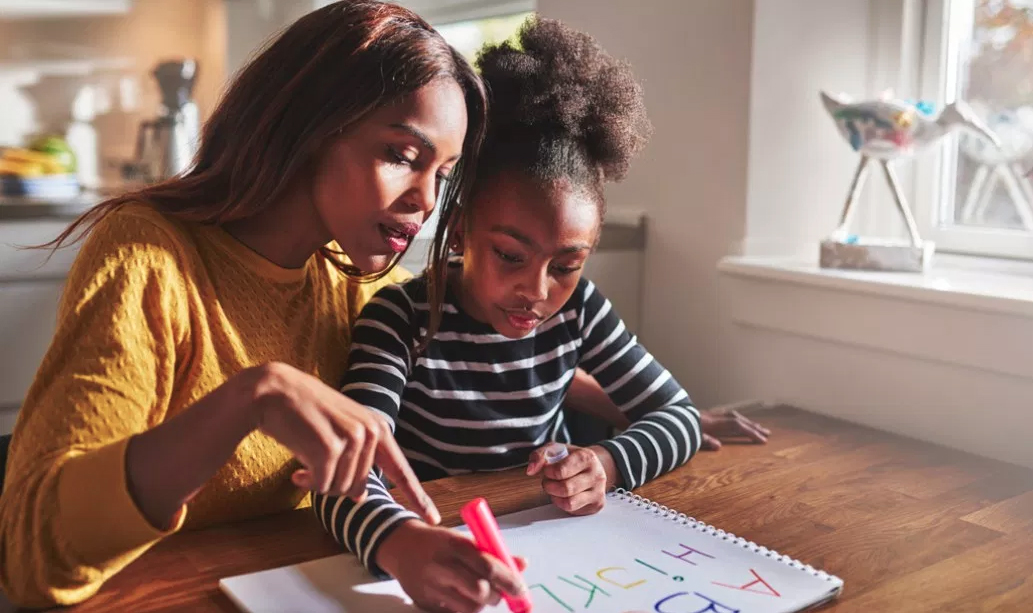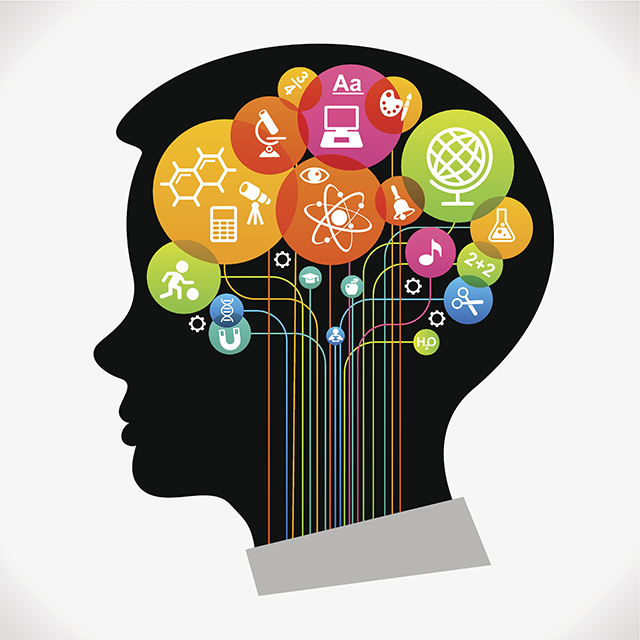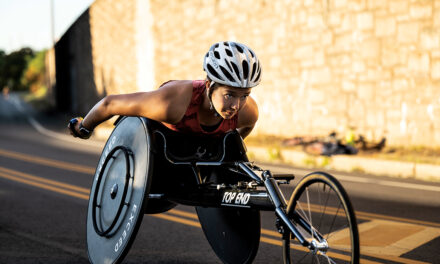Identifying how our kids best learn can help them throughout their education and in life. We turned to the experts to find out where to start to champion our children.
We all make mistakes as parents. We lose our temper. We show up late to school for pick-up. We miss a child’s all-important somersault or handstand while looking at an email on our phone. Nobody’s perfect, yet we all strive to be the parents our kids deserve.
We draw from our own experiences and try to give them the benefit of our knowledge. But sometimes, in our haste to avoid our own pitfalls, we stumble upon new ones.
Case in point: My wife and I discovered early on that our now 5-year-old son wasn’t the kind of kid who colors inside the lines. He tended to play by himself and rarely remembered the names of other kids at his preschool. He couldn’t sit still for more than a few seconds at a time, and his enthusiasm tended to overpower his ability to pay attention. As one of his teachers told us, he liked to have a say in his education, which meant telling other people what to do rather than following directions himself.
With our son approaching kindergarten, we found ourselves floundering. We had only known what it was like to parent an easygoing, rule-following, and people-pleasing 9-year-old. With son number two, we were out of our element. For him to succeed in kindergarten (and beyond), we knew he needed extra support, but we didn’t know where to turn. Fortunately, his school recognized the situation early on and was eager to help. In our first meeting with the principal, she looked our son in the eyes with a wry smile and said, “I want to know what’s going on in that head of yours.” With that as her mission, she and a team of caring and knowledgeable educators assembled a personalized education plan centered on how our son learned best. Even better, she incorporated my wife and I into the process, making us part of the support team and giving us the tools to help our son navigate the year ahead.
As parents, we can become paralyzed when our children struggle with learning differences and fear the stigma of a disability that may hold them back. “There can be a lot of stigma associated with some of these labels, and parents can focus on them more than is needed,” says Jennifer Dave, PhD, a neuropsychologist at Capital Health’s Capital Institute for Neurosciences. “It’s important to pass on a message to kids that they might have a little difficulty in one or two areas, but we’re going to help them, instead of the message that there’s something wrong with them.” Kids’ minds are sponges, for sure, but even sponges don’t absorb everything equally.
Whether your child has learning differences, struggles with socially awkward behavior, or is a gifted learner, the best way to keep any potential issues from doing lasting damage is to do your best to put your mind in your child’s mind. Learning differences don’t have to be disabling. “By gaining a better understanding of how your children learn, you can help them find the tools they need to meet and even exceed their potential,” says Dr. Dave. It starts by taking a close look at the two most common stumbling blocks: reading difficulties and learning issues surrounding attention deficit hyperactive disorder (ADHD).
Education isn’t something children can do on their own. As my wife and I learned with our son, it takes a village to provide the social and emotional tools children need to work through the challenges facing them.

Identifying the Issues
“Around the third or fourth grade, it often becomes more noticeable to teachers if a child is having reading difficulties or attention deficit problems,” says Dr. Dave. “That’s when students change from learning to read to reading to learn, and that’s when the school demands more from them.” She notes that when kids are required to sit quietly for a longer stretch of time in fourth grade, their ADHD is going to be more apparent. The intense focus on reading comprehension in the classroom often teases out reading difficulties that are present from a young age and usually result from specific differences in the way the brain processes language.
Studies show that children who don’t read proficiently by third grade are less likely to finish high school. “Reading difficulties in children may lead to global educational issues,” says Mitra Assadi, MD, a neurologist and director of pediatric neurology at Capital Health’s Capital Institute for Neurosciences. “A great deal of learning is language based, and therefore, performance in math could be adversely affected by a child’s difficulty in deciphering language.”
With reading and writing being fundamental to every other subject taught in school, students with reading difficulties often compensate by turning to verbal cues, rote memorization, and prior experience. “Kids don’t want to be different from everyone else, so they don’t always raise their hand and say, ‘I see this differently,’ and sometimes they don’t realize that they do see it differently,” says Nancy Weinstein, founder and CEO of Mindprint Learning, an online learning service based in Princeton, N.J. Her company uses cognitive tests to identify a child’s learning strengths and weaknesses and provides resources to help parents understand how their children learn best, in and outside of the classroom. She adds that students can only go so far when they’re adjusting for any sort of reading difficulties. “Kids can compensate for a while, but then, over time, there’s too much to read that they can’t memorize it all or figure out a way around it,” Weinstein says.
Reading difficulties aren’t always the result of conditions like dyslexia, which make it difficult for a person to decipher and interpret words. “When it comes to dyslexia and reading disorders, the left hemisphere of the brain is typically implicated, as that’s where language develops in most people,” says Dr. Dave. “That’s usually where there can be some difficulties.” Figuring out the right strategy to address a child’s reading difficulties depends on understanding the particular way she learns. “For instance, dyslexia can involve problems in breaking down and pronouncing words, comprehending what was read, or reading fluency, which is how quickly you can read,” says Dr. Dave. “Depending on what’s going on, I might recommend different accommodations.” When it comes to reading-comprehension issues, she often prescribes active reading techniques like having children create outlines of the articles and books that they read to ensure understanding. “For reading fluency, the best accommodation is extra time,” she says. “But every child and situation is different, so it’s really about helping them in ways that are tailored to their learning styles.”

Being Outnumbered
When the new Common Core Standards for grades K–12 came out in 2014, it acknowledged other options than rote memorization for learning math facts. This was a big win for all the educators and parents who’ve seen how often timed drills and other memorization techniques create math anxiety in children.
The fear is that kids who fail to memorize their math facts come away with the belief that they’ll never be successful at math. Recently, research out of Stanford University demonstrated that students learn math best when they approach the subject as something they enjoy, concluding that the best way for students to know math facts is to understand numerical relations, and use numbers flexibly. “When your child’s struggling with math, the answer doesn’t always involve getting hours of tutoring,” says Weinstein. “It might be about finding studying and memorization techniques that are better for her since everyone doesn’t have to learn math facts the same way.”

Gifted Learners
“I know a lot of neuropsychologists who get those primary referrals saying, ‘I want my kid to be tested to figure out, first if they’re gifted, and on the other end, why they’re having trouble in school,’” says Dr. Dave. Having a child who is a gifted learner can be a double-edged sword, since being labeled “gifted” doesn’t automatically make them better students in every subject. “You often have more to deal with when you have gifted students,” says Stacy Zanine, gifted teacher in Pennsylvania’s Souderton Area School District. “Because they don’t always perform to their potential.” While they have a greater aptitude for learning, gifted students are still children at the end of the day, and need to balance their academic success with social and emotional growth. “Gifted children can learn independently, but like all kids, they benefit from a steady hand guiding them along,” says Dr. Assadi.
It doesn’t matter why a student needs learning support; it only matters that we provide it. Some kids just think differently from others, and we can’t necessarily change that—it’s who they are.
—Stacy Zanine, gifted teacher, Souderton Area School District

All in the Approach
While Dr. Assadi and Dr. Dave are trained to conduct neurological and neuropsychological evaluations to recommend specialized education programs in schools, the most important tool they use is a child’s history of learning. “Children who have been delayed in language acquisition have a high chance of developing a learning disability involving language-based subjects,” says Dr. Assadi. “We try to tease out the underlying cause, which may not be due solely to verbal abilities, but also limitations in computational and visual processing.” She says that, in the end, there isn’t a one-size-fits-all test.
“Brain scans on these children tend to be normal,” says Dr. Assadi. “The abnormality is at the level of the micro-structures, which isn’t visible in a brain scan. Often, the problem lies in the neuronal connection (‘white matter’) as shown in the literature. The frontal lobes of children with ADHD show delay in myelin deposition and maturation.” In essence, the circuits connecting the frontal lobe appear to be different in kids with ADHD. “Everything characterizing an ADHD child—impulse control, self-regulation, inattention, and sleep disturbance—is related to frontal-lobe function,” Dr. Assadi says. Collectively, she adds, these self-management tasks, which also include working memory and cognitive flexibility, are called executive functions, and they often can be compromised in children who struggle with ADHD.
Dr. Assadi and Dr. Dave use screening tools, such as the Conners Scale, and neuropsychological profiles that look at a child’s attention, executive functioning skills, and visual/spatial skills to make their ADHD diagnosis. “Another important component to examine is a child’s mood,” says Dr. Dave. “Sometimes there is a concern for ADHD, when in fact, the child’s anxiety is off the charts and that is the primary contributor, rather than ADHD.”
While boys are more prone to hyperactivity and impulsivity, girls who suffer from ADHD are often more likely to just let their minds wander. And because they’re not being disruptive, they often are not identified in school. “Often, kids with ADHD exhibit disruptive behavior when they get stuck and can’t figure out a solution,” says Weinstein. “So, they need coaching on how to deal with change and how to adapt to new instructions.” Dr. Dave agrees and tends to recommend compensatory techniques that help children manage their attention issues without medication. “So, understanding that you if have a 15-minute attention span, for instance, try working for 15 minutes and then give yourself a 5-minute break,” she says. To help with organizational issues, she works with parents to break tasks into smaller segments so their kids can follow along. She also helps parents come up with different strategies to help their kids organize their backpacks and remember their assignments.
Maintaining a consistent sleep schedule helps, too. “Making sure your children get a good night’s sleep is one of the most important things you can do for them,” says Weinstein. “That means having a routine and turning off devices 2 hours before they go to sleep, because devices keep them up.”
Social-skills training can also help a child with ADHD deal with some of the impulsiveness, hyperactivity, and inattentiveness he or she may feel. “You ignore the social piece to your detriment—to be truly successful, you really need more than just intelligence,” says Dr. Assadi. Developing social skills can go a long way toward helping children overcome the obstacles they face. “I’ve tested people in their 30s and 40s with as-yet undiagnosed ADHD,” says Dr. Dave. “They might be, for example, the most successful salesperson at their company because of well-developed social skills.”
A Teachable Moment
“It doesn’t matter why a student needs learning support; it only matters that we provide it,” says Stacy Zanine, a gifted teacher in Pennsylvania’s Souderton Area School District. “Some kids just think differently from others, and we can’t necessarily change that—it’s who they are.” Like so many other teachers, Zanine is constantly searching for ways to help her students help themselves. That includes asking parents to reinforce weekly lessons and support behavioral programs at home.
“As a parent, if you notice things, I would recommend trying to implement some accommodations at home and raising your concerns with teachers, as schools are often where evaluations are initiated,” says Dr. Dave. And don’t be afraid to share ideas of what works with your child’s teachers and support staff. In the end, education is an ongoing dialogue, and we all have a role to play in making sure our children get the most out of school.
“It would be great if a learning issue could be resolved with a simple solution, but these are kids, and this isn’t an exact science. It’s an evolving process that requires the student, the parents, and the educators to all be on the same page and to be willing to adjust as they go,” says Zanine. “Because in the end, these differences are what make the kids the incredible and unique individuals they are, and it’s our job to help them thrive.”
For parents, this comes down to understanding the challenges your child faces, recognizing what your child needs, and pairing that all up with a whole lot of love.
Resource Box
READING Reading Rockets | PBS Kids
MATH YouCubed | Everyday Math
ADHD ADDitude magazine
LEARNING Mindprint Learning | Hoagies Gifted
| All Kinds of Minds






